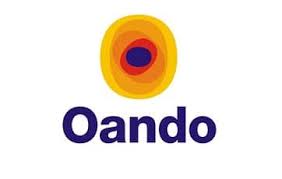NNPC Refineries: Is this really how to spend N100Billion?

There are people who insist that Nigeria does not have a revenue problem but a spending problem, and a piece of news from yesterday strengthens their argument. This news was the announcement by the Nigerian National Petroleum Company Limited (NNPC) that the company had spent a sum of N100Billion to rehabilitate its three refineries last year. This, presumably, is apart from the billions spent on the overhead cost of the refineries. In June 2020, the refineries had a monthly operational expenditure of N10Billion so it’s easy to do the maths of what the refineries cost us apart from the money spent on their rehabilitation.
What are we paying for exactly? The refineries have all been virtually nonfunctional for years now. Take a look at this table from the NNPC Annual Statistical Bulletin which shows the amount of crude oil the NNPC supplied to the refineries over a ten year period. The last time the refineries used up to 25% of their installed capacity was in 2011. Since then everything has gone downhill and in the last three years, 2019, 2020 and 2021, the refineries refined virtually nothing. And yet, we keep spending billions to keep them open. An analysis by the Premium Times shows that the refineries lost an average of N328Billion every year between 2014 and 2018.


Not to drown you in numbers but it is important to also note that the Federal Government has already approved $1.5Billion or N630Billion for the rehabilitation of the Port Harcourt Refinery. This investment, if we can even call it that, flies in the face of all the hard data in various NNPC’s own reports that have been consistent in proving the foolhardiness of the numerous “rehabilitations” or “turnaround repairs” we’ve done in the past. Why have we continued to do more experiments with scarce resources when the results of previous experiments are there for all to see? How much more billions is the government going to spend before realising that it simply can’t make the refineries to run efficiently and profitably? This was something the government under President Olusegun Obasanjo had realised in 2006 when it decided to sell the refineries before its successor reversed the sale.
Also Read: Nigeria Embarks on Yet Another Oil Refinery Rehabilitation
When government complains of inadequate funds for their various projects, money-gulping but nonfunctional ventures like the refineries and the Ajaokuta Steel Company Limited weakens their case. Nigeria does not have limitless resources and the government has been running humougous budget deficits funded by new loans. Instead of being enamoured by the idea of national refineries, citizens must ask questions of how every penny of government money is spent. At a time when 100Billion was spent on rehabilitating unworkable refineries, government budgeted only a fraction of that amount (18% to be exact) for the University College Hospital (UCH), Ibadan, Nigeria’s best-funded public hospital.


The N100Billion could have therefore run 5 UCHs with enough change left to run the medical centre in Aso Villa. Every naira spent on the refineries is a naira not spent on UCH and other teaching hospitals, facilities that, despite their various challenges, continue to provide services they were created to provide.







